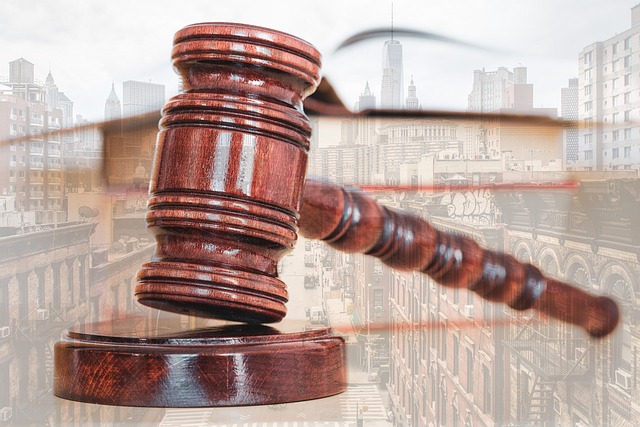Oregon's criminal justice system has evolved over centuries, from harsh punishments to a balanced approach combining punishment and rehabilitation post-statehood. The state's unique context, including abundant natural resources and diverse population, has shaped key defense strategies like environmental policies and equitable enforcement with strong legal representation. Oregon boasts a robust legal framework that prioritizes fairness and individual rights, with constitutional protections, presumption of innocence, and against self-incrimination. This system ensures all residents have access to quality legal defense, with courts acting as impartial arbiters, prosecutors building cases, and public defenders providing representation for the indigent. Continuous updates, technological advancements, and recent reforms maintain a dynamic yet fair legal framework for both defendants and victims in Oregon.
Oregon’s criminal defense system is a complex tapestry woven with historical threads and modern developments. This article delves into the key elements shaping legal proceedings in the state, from the historical overview of its criminal justice system to the recent challenges and advancements. We explore the fundamental rights and protections afforded accused individuals, the crucial roles of courts, prosecutors, and public defenders, all within Oregon’s unique legal framework. Understanding these components is essential for navigating the intricate landscape of criminal defense in Oregon.
- Historical Overview of Oregon's Criminal Justice System
- Key Components of the Legal Framework: Rights and Protections for Accused Individuals
- Role of Courts, Prosecutors, and Public Defenders in Oregon's Defense System
- Challenges and Recent Developments Shaping Oregon's Criminal Defense Landscape
Historical Overview of Oregon's Criminal Justice System

Oregon’s criminal justice system has evolved over centuries, reflecting changes in society and values. Initially, criminal law in Oregon was shaped by its status as a territory, with a focus on punishing offenses harshly. As the state gained statehood in 1859, the legal framework began to shift towards a more balanced approach, emphasizing both punishment and rehabilitation. This transition set the stage for the modern-day criminal defense system in Oregon.
The state’s unique historical context has contributed to key elements of its criminal defense strategy. Oregon’s rich natural resources have influenced policies related to environmental crimes, while its diverse population has prompted a focus on equitable enforcement and access to legal representation. Over time, these factors have molded a robust legal framework that protects the rights of individuals while ensuring public safety within the state.
Key Components of the Legal Framework: Rights and Protections for Accused Individuals

In Oregon, the criminal defense system is built on a robust legal framework designed to safeguard the rights and protections of accused individuals. The foundation lies in the state constitution and laws, which guarantee due process and ensure that every person accused of a crime receives a fair trial. This includes the right to an attorney, a fundamental aspect of the defense strategy, allowing individuals to navigate complex legal procedures and challenge evidence against them.
The Oregon legal framework further emphasizes the presumption of innocence, placing the burden of proof on the prosecution. This means that unless proven guilty beyond a reasonable doubt, accused persons are considered innocent. Additionally, the system provides protections against self-incrimination, ensuring that statements made during investigations or in court cannot be used to incriminate an individual without their voluntary consent. These key components collectively form a comprehensive defense mechanism within the legal framework of Oregon.
Role of Courts, Prosecutors, and Public Defenders in Oregon's Defense System

In Oregon, the criminal defense system is a carefully constructed legal framework that ensures fairness and justice for all individuals accused of crimes. The courts play a pivotal role as neutral arbiters, interpreting laws and determining guilt or innocence based on evidence presented by both prosecution and defense teams. Prosecutors, acting on behalf of the state, are responsible for gathering and presenting evidence to support charges against defendants. They also negotiate plea deals when appropriate, aiming for resolutions that serve the interest of justice and public safety.
Public defenders, a crucial component of Oregon’s legal framework, provide legal representation to those who cannot afford private counsel. They advocate for their clients’ rights, ensuring they receive a fair trial and challenging any illegal evidence or procedural irregularities. This system ensures that all citizens, regardless of financial means, have access to quality legal defense within the context of Oregon’s criminal justice process.
Challenges and Recent Developments Shaping Oregon's Criminal Defense Landscape

Oregon’s criminal defense system faces persistent challenges that significantly shape its landscape. One notable issue is the complex and evolving nature of state laws, which can make it difficult for defendants to navigate the legal framework effectively. The constant changes in legislation demand that legal professionals stay updated, requiring a significant investment of time and resources. Furthermore, the state’s robust advocacy for victim rights often intensifies the overall criminal process, putting pressure on defense attorneys to deliver robust representations.
Recent developments have brought both opportunities and challenges. Advancements in technology have enhanced investigative capabilities but also raised concerns about privacy. Additionally, efforts to reform the criminal justice system, such as the push for alternative sentencing options and restorative justice practices, reflect a broader national trend. These reforms aim to address systemic issues and promote fairness within Oregon’s legal framework, offering potential benefits to both defendants and victims.
